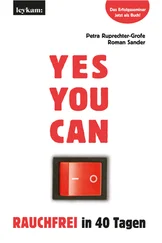I did not tell my grandparents that I was living in Montpellier. I told them I was on my way to Spain, with the thought in mind of enrolling in one of the Spanish universities. I visited them a second time during my stay in Montpellier. I told them on that occasion that I hadn’t found a Spanish college that challenged me and was returning to Italy to explore the universities there.
As I became more satisfied with my life in Montpellier, I actually contemplated resuming my education. Montpellier is the seat of one of France ’s twenty academic districts and a small but fine state university was located in the city. I visited the campus and learned that several courses were available to foreigners, although none was taught in English. However, that was no bar to me, since French was a second tongue for me, acquired from my mother.
I also started thinking about getting a job or opening some kind of small business, perhaps a stationery store, since I was growing sleek and plump in the idle, luxurious life I was leading. Even Armand remarked on my increasing stoutness. “There is not much exercise in writing, eh, Robert?” he said, poking me in the stomach.
“Why don’t you come to work for me in the vineyards, and I will make you lean and tough.” I declined the offer. Physical labor is not my forte. Nor could I force myself to exercise.
I was still mulling the thought of registering at the university, and the idea of finding some useful employment, when both issues were rendered moot. Four months after taking up residence in Montpellier, I learned a bitter truth: when the hounds have help, there is no safe place for a fox to hide.
I shopped regularly at a small (by American standards) market on the outskirts of Montpellier, a grocery Armand had recommended. I went to the store twice weekly to supply my larder, or whenever I needed something. This occasion was one of my scheduled shopping trips and the store clerk was sacking my groceries when I remembered I needed milk. I told the boy to set my foodstuffs aside (there were others in line) and strolled to the back ot the store for the milk. Returning to the check-out counter, I walked around a shelf of canned goods and saw four men at the checker’s stand, now devoid of customers and clerk.
One had a shotgun, another had what appeared to be a short-barreled machine gun and the other two had pistols. My first thought was that bandits were robbing the store and that the employees and customers were on the floor.
But as I wheeled to seek cover behind the shelves, one of the men shouted, “Abagnale!”
I ducked behind the shelves only to be confronted by three uniformed gendarmes, all pointing pistols at me. They came at me from all sides then, men in uniform, men in plainclothes and all pointing a pistol, shotgun, machine gun or rifle at me. Orders cracked around my ears like whip pops.
“Hands up!”
“Hands on your head!”
“Up against the shelves, spread-eagle!”
“Face down on the floor!”
I had my hands up. I didn’t know which of the other commands to obey, but I sure as hell didn’t want to be shot. And some of the officers were handling their weapons in a manner that scared me. As a matter of fact, they were scaring their fellow officers.
“For God’s sake, don’t shoot,” I shouted. “One of you tell me what you want me to do and I’ll do it.”
A tall, lean man with austere features pointed his pistol at me. “Get on the floor, facedown!” he barked. I did as he instructed, helped by several less-than-gentle hands. Rough hands twisted my arms up behind my back and other uncaring hands clamped steel circlets tightly around my wrists.
I was then hauled unceremoniously to my feet and, surrounded by Surete detectives, Interpol agents, gendarmes and God knows what other kind of fuzz, I was hustled out of the store and rudely shoved into the back seat of an unmarked sedan. I can’t say French police are brutal, but I will say they handle suspects with undue firmness. I was driven directly to the Montpellier police station. No one said a word en route.
At the station, the austere detective and two other officers, also Surete agents, ushered me into a small room. French policemen have a wide latitude in the handling of criminals, especially in interrogations of suspects. They get right to the point, dispensing with the reading of any rights a criminal may have. I don’t think a crook has any rights in France.
“My name is Marcel Gaston, of the Surete!,” said the lean officer in curt tones. “You are Frank Abagnale, are you not?”
“I’m Robert Monjo,” I said in indignant tones. “I’m a writer from California, an American. I’m afraid you gentlemen have made a very serious mistake.”
Gaston slapped me, a sharp, stinging blow. “Most of the mistakes I make, monsieur, are serious mistakes, but I have not made a mistake in this instance. You are Frank Abagnale.”
“I am Robert Monjo,” I said doggedly, searching their faces for a hint of doubt.
One of the other Surety agents stepped forward, his hand balled into a fist, but Gaston put out an arm and stopped him, without releasing me from his fixed stare. Then he shrugged.
“We could beat it out of you, but that isn’t necessary,” he said. “I have all the time in the world, Abagnale, but I don’t intend to waste too much of it on you. We can hold you until doomsday, or at least until we have located witnesses to identify you. Until then, unless you choose to cooperate, I am going to place you in the cell for common drunks and petty criminals. You can stay there for a week, two weeks, a month, it makes no difference to me. However, you will not be fed and you will have no water until you decide to confess. Why don’t you just tell us what we want to know right now? We know who you are. We know what you have done. You will only inconvenience yourself.
“One other thing, Abagnale. If you force us to go to a lot of trouble to get the information you could give us at this moment, I will not forget it. And you will always remember the consequences, I promise you.”
I looked at Gaston and knew he meant every word he had spoken. Marcel Gaston was one tough bastard.
“I’m Frank Abagnale,” I said.
I never really gave them the kind of confession they wanted. I never volunteered any details on any of the offenses I’d committed in France. But if they knew of a particular caper and outlined it for me, I’d nod and say, “That’s about the way it happened, all right,” or, “Yes, that was me.”
Gaston made up a document, setting down a lot of my crimes, the circumstances of my arrest and my interrogation, and let me read it. “If that is essentially correct, you will help yourself by signing it,” he said.
I couldn’t quarrel with the instrument. He’d even included the fact that he’d slapped me. I signed it.
The affidavit also disclosed how I’d been caught. Major airlines didn’t serve Montpellier, but it was visited frequently by stewardesses and other flight personnel. An Air France flight attendant, visiting relatives in Montpellier, had spotted me shopping a couple of weeks past and had recognized me. She had seen me get into my car and had jotted down the license number. On her return to Paris, she had sought out her captain and told him of her suspicions. She was positive enough about her identification that her captain called the police.
“I’m positive it’s him. I dated him,” she insisted.
I never learned which Air France stewardess put the finger on me. No one would tell me. I had dallied with several, over the years. I hoped it wasn’t Monique, but to this day I still don’t know the informant’s identity. I don’t think it was Monique, however. Had she seen me in Montpellier, she would have confronted me.
Читать дальше











